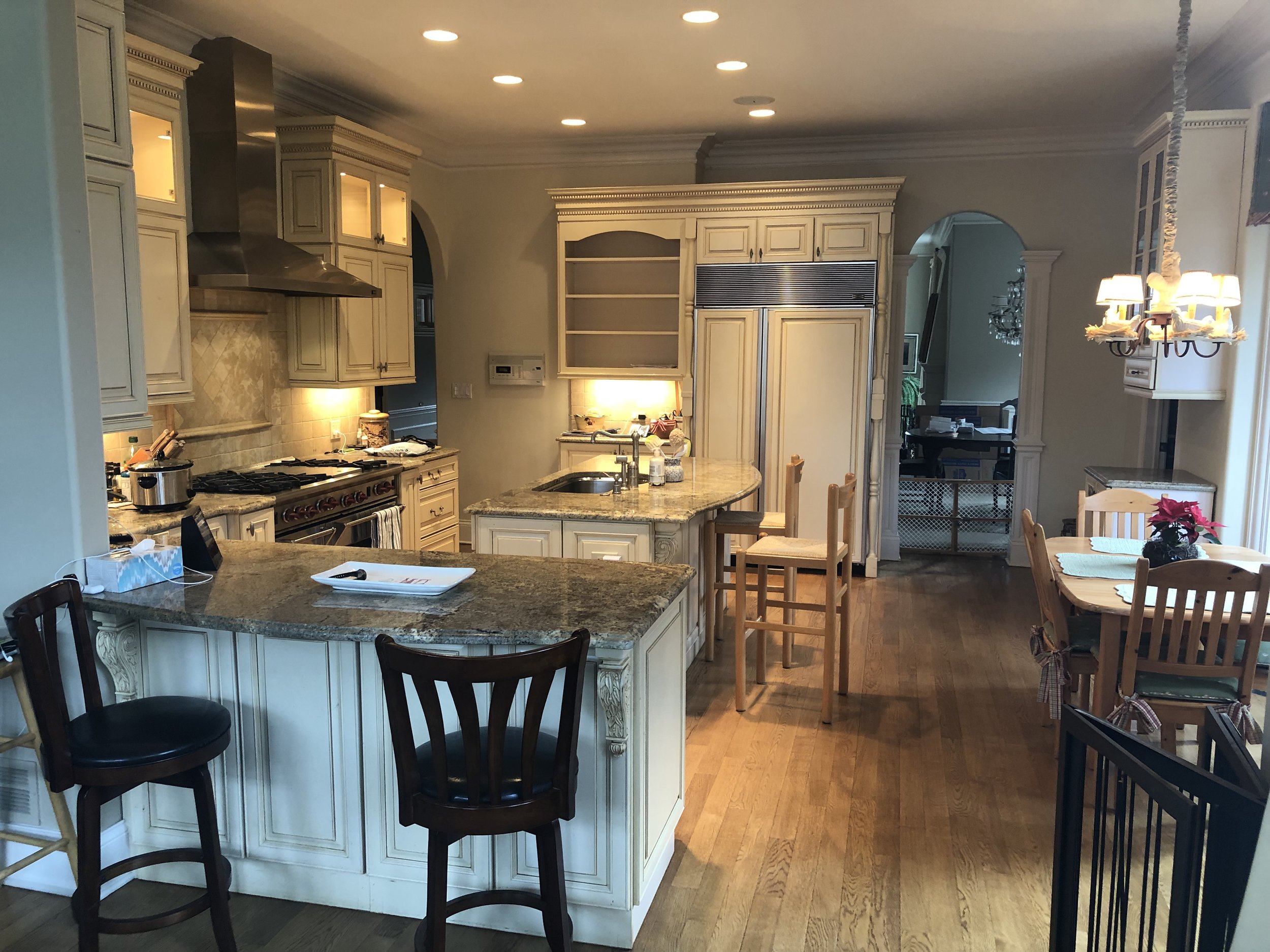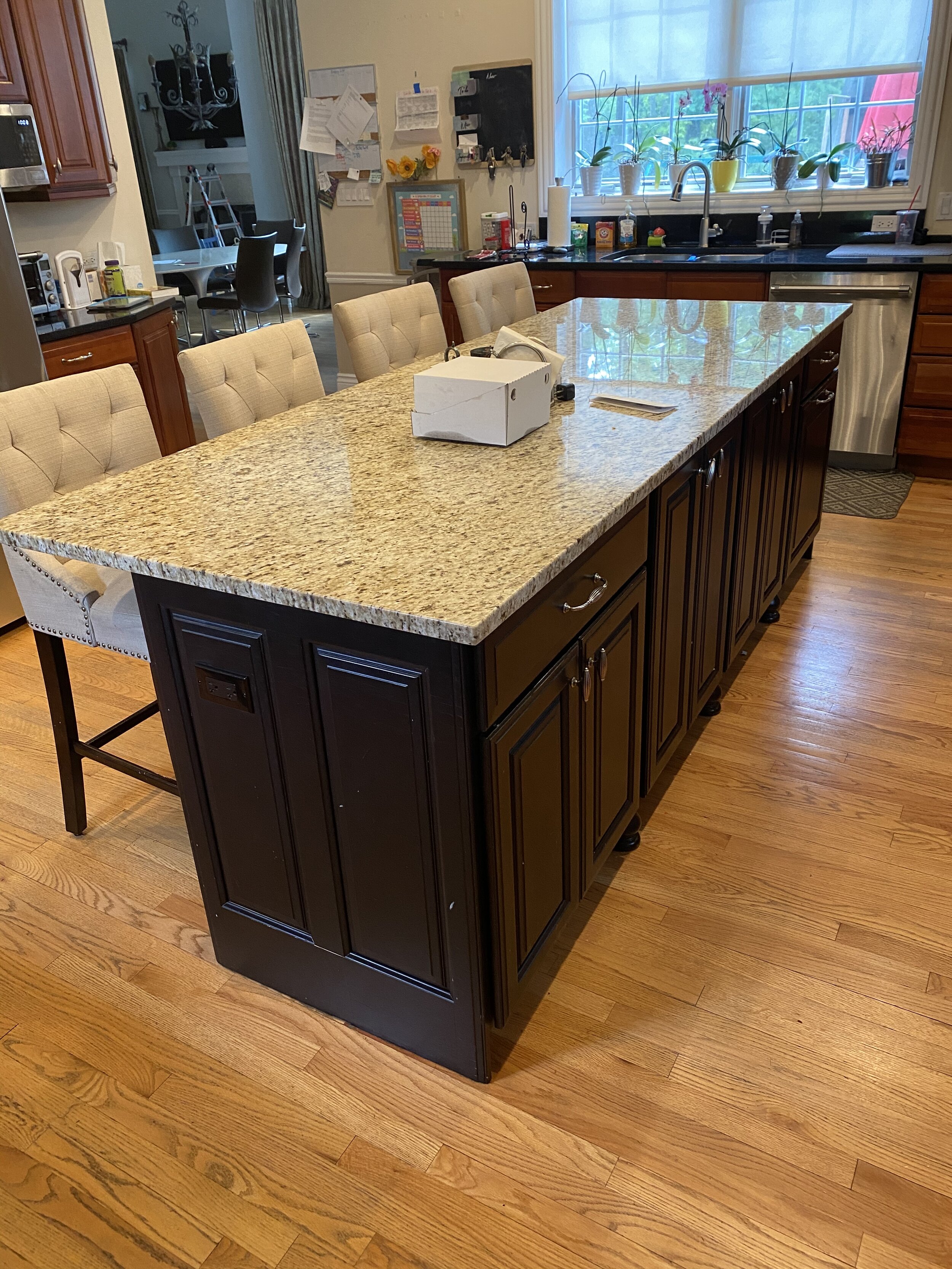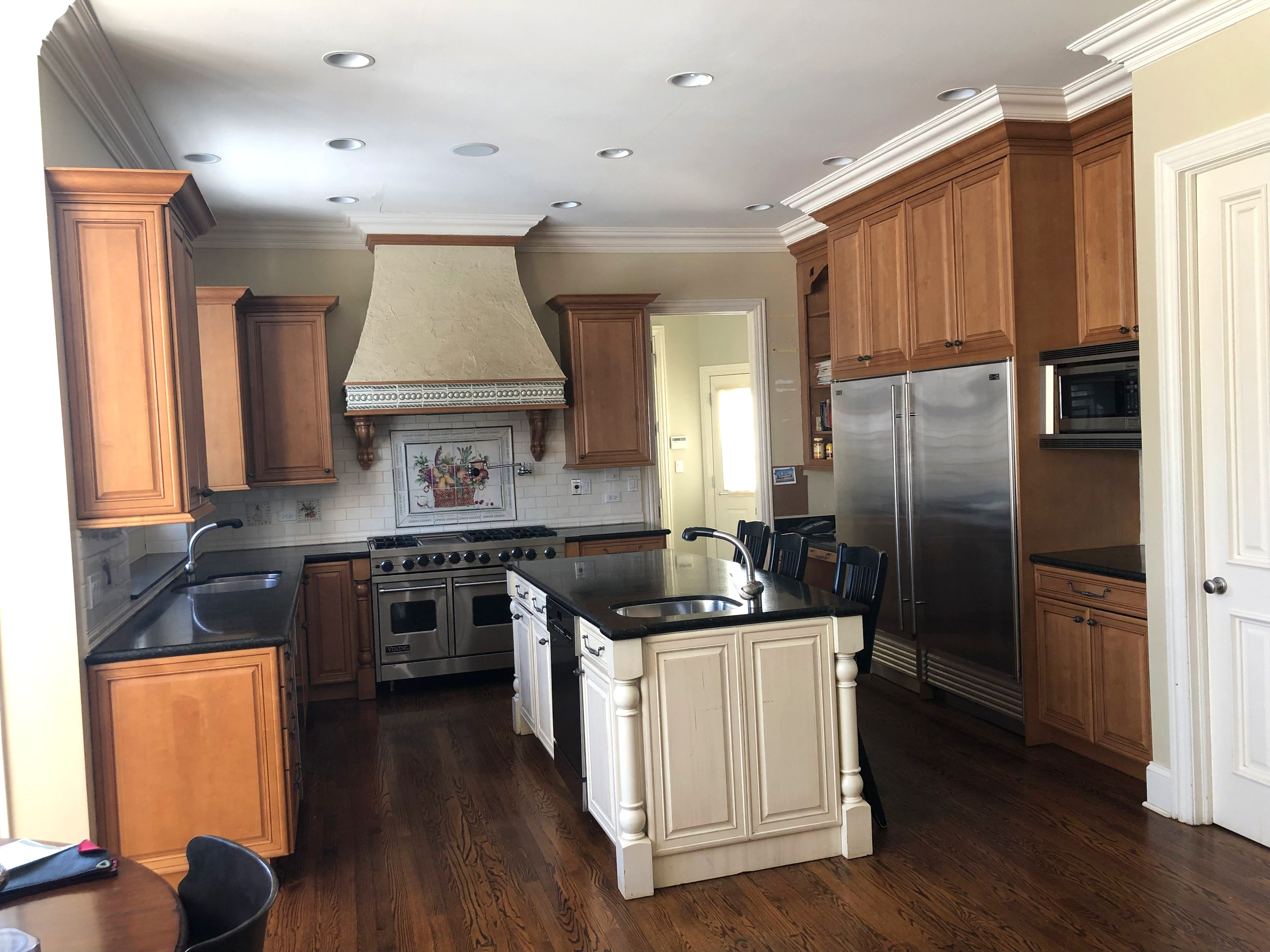Pros and Cons of Granite Kitchen Countertops
Granite has long been the dream, or the most sought after countertop material for those who aspire to create their ideal kitchen. But technology has progressed, and there are several options for countertops if you’re remodeling or purchasing a luxury pre-owned kitchen. The best thing to do is think about what you want, and weigh the pros and cons of purchasing and installing a granite kitchen countertop.
Granite Kitchen Countertop Composition
Granite is mainly composed of quartz and feldspar, and usually includes small black grains of amphibole that are blended with the material. Unlike marble, granite doesn’t have veining, and crystals in granite are easily visible. The crystals and the grains of amphibole are random, and that's a big difference from synthetic granite in terms of aesthetics.
Synthetic granite kitchen countertops have a patterned, or more uniform appearance, but it still requires a trained eye to see the difference. No two granite countertops are alike, and that’s a very attractive quality to many, but it’s also limited to what mother earth produces. Granite kitchen countertops are all natural, thus, they don’t come in many colors, but they’re sturdy, and can survive a lot of punishment.
The Durability of Granite Countertops
One of the greatest pros of installing granite kitchen countertops is their durability. Granite scores a seven-out-of-ten on the Mohs scale, which means it’s tough and can only really be scratched by materials like crystal or drill bits. It also has uncanny heat resistance, making it just fine to place scolding hot pots and pans directly on the counter without fear of damage.
Granite is a porous material, and a major con is that liquids can affect it. Granite kitchen countertops will absorb liquids if they’re left on the surface for too long. However, this is usually an easy fix, as the liquid just needs to evaporate. The main problem with granite kitchen countertops in terms of durability is the fact that they can stain. This could be a problem if you have children or are notorious for spilling, as some liquids and chemicals can cause permanent staining.
For a little extra cost, granite can be given an extra sealing treatment, and it’s recommended that you ask your contractor about it prior to installation.
Pricing for Granite Kitchen Counters
We’ll start with the pros of paying the hefty price that granite kitchen countertops command. Number one above all is that the value added to your home, which makes granite countertops a real estate investment. Keep in mind that there are also less expensive options available, such as tiled granite or modular granite. While granite does carry a high price tag, it’s also less expensive than some trendy options, such as composite and engineered stone kitchen countertops.
It turns out the cons are the same as the pros when it comes to granite countertops, which means we’re back to discussing that hefty price tag. The cost of granite kitchen countertops is between $2,500 and $4,000 depending on the size of your kitchen, and since kitchens vary, consider that granite generally goes for $35 to $55 per square foot. This is not to say that all granite is created equal, as you’ll need to look for more than just the lowest price. Your contractor's final quote should include material specs, as well as fabrication and installation.
What Colors does Granite Come in?
Believe it or not, granite kitchen countertops are available in different colors! Of course, we’re not talking about solid colors here, but the overall color scheme can be made up of white, black, brown, beige, blue or red. White is actually the hardest to come by, but it looks great in small kitchens, or when paired with dark wood. Pair black and gray granite kitchen countertops with contemporary or modern kitchen designs, and beige, blue and red for Tuscan or mission-style kitchen styles.
Granite is an all natural stone, and what mother earth gives us is what we’re limited to. That means that all of the colors mentioned above might not be available in your locale, so don’t count on finding the more rare colors. Solid, bright colors are really just not an option for granite kitchen countertops, and furthermore, multiple colors are found in the same slab oftentimes. That means it’s best for you to inspect your granite slab prior to installation to make sure the combination of colors is exactly what you want.
Pro’s and Cons of Granite Kitchen Countertops Overall
We say that the pros of granite kitchen countertops outweigh the cons. Granite kitchen countertops are a timeless investment that gives your home better resale value. They come in more styles and colors than you would think and require little to no maintenance.
The cons, of course, are that granite is on the expensive side of kitchen countertop options overall, and granite is prone to staining from spills. But sealant can be applied ahead of time to mitigate damage from spills, and savvy buyers will be able to find inexpensive granite kitchen countertop options.
Find which granite kitchen countertop fits you best with Little Green Kitchens. We can help you maximize your options for kitchen essentials from appliances to cabinets to counters to floors.



